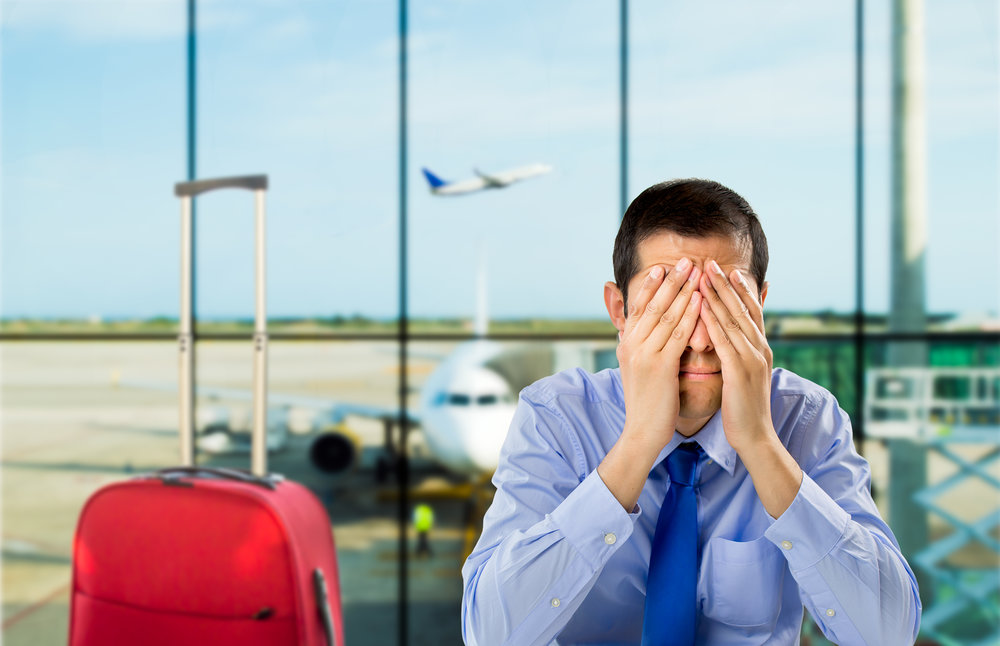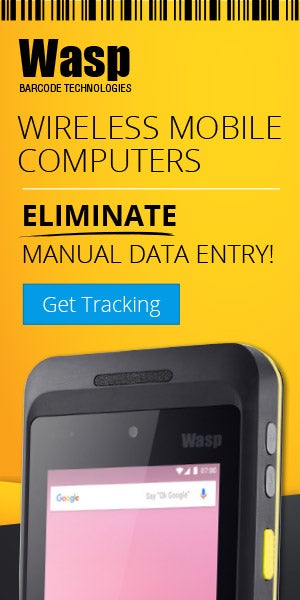Wasp Barcode Technologies: The Barcode Solution People
How Small Businesses Can Avoid A United Airlines PR Nightmare

By now you’ve probably seen the video setting the internet on fire: A man, after refusing to be involuntarily removed from United Airlines Flight 3411, dragged down the aisle like human cargo, and returning to the cabin bloodied and shaken. If you’ve followed this story, you know that as badly as United handled the original situation, their public relations’ team’s handling of the aftermath was even worse.
United’s CEO was terse and unfeeling in his original statement, the social media team was evasive and unhelpful, and the overall response of the company mirrored the actions of the police officer who removed Dr. David Dao from the plane: uncaring and brutal. In an industry where the bottom line has replaced customer service as king, this incident and the followup felt like a slap in the face to all travelers.
Small businesses and mega companies alike need to take note of how United took a routine situation—overbooking a flight, which happens more often that you might think—and turned it into a PR nightmare. United’s stock has taken a hit, and though even the biggest corporate crisis will eventually pass, the company’s name is now synonymous with how not to handle things.
Let’s run through all the ways United made mistakes in handling the situation, from the plane cabin to social media and beyond.
First: Don’t ever let a situation get this out of hand
The best way to deal with a PR disaster is not to have one in the first place. That seems obvious in retrospect, but the truth is United should have seen the potential for an incident like this coming.
[Tweet "The best way to deal with a PR disaster is not to have one in the first place."]
It’s actually common practice for airlines to overbook flights, with the expectation that a number of people won’t show up. When everyone does, however, people are asked to voluntarily give up their seat, and occasionally the airline resorts to involuntary booting. But United Airlines passengers are involuntarily denied boarding
more than passengers of any other major airline. While the number of overall passengers denied is relatively small, United had the greatest chance for an issue, almost twice as likely as competitor Delta.
Plus, it appears that United employees failed to follow common practice when overbooking occurs, allowing passengers to board the plane and be seated before forcing a few off the plane. The whole situation could have been avoided had the people on the ground, basically, followed set procedures. They didn’t, and that’s on the company for forcing them into a tough situation and not giving them the tools to handle it properly.
When fielding questions and requests on social media, don’t shift the blame
This incident went viral the way everything else does: Thanks to rapid sharing on social media, particularly Twitter. Every major brand has a social media outlet in order to handle customer complaints and comments, but United’s team proved remarkably tone-deaf when it came to addressing the situation.
When asked for comment, the Twitter feed appeared to defend the brutal actions of the security team that forcibly removed the man from the flight, saying
“one customer refused to leave the aircraft voluntarily,” as if that was justification for dragging him through the cabin and essentially assaulting him, leaving him concussed and with a broken nose.
Then CEO Oscar Munoz released a statement through the feed, saying he apologized for having to “re-accommodate these customers.” Though going on to say the company was reviewing events and would try to “resolve the situation,” the stilted, informal language rubbed seemingly everyone the wrong way.
Also, the Twitter feed appeared to handle a joke complaint about eating pasta with fingers with more compassion than the Flight 3411 incident, which threw the company’s lack of humanity into even starker relief.
The lesson here? Social media isn’t necessarily a shield to hold up in front of the company, defending every employee’s decisions or actions. The knee-jerk reaction should not be to shift blame, and any apology or statement from a company leader should only be issued after more information is gathered. Don’t give people the opportunity to pile on—do due diligence and ensure you understand the incident before addressing Twitter, which can be savage in its collective rage.

Those at the top need to take responsibility
Munoz’s ineffective and frankly insufficient initial response was highlighted by the Twitter mob as ironic when reporters realized he had recently been honored as
Communicator of the Year by PRWeek. Munoz was lauded by his own company for reconnecting “with employees and customers.”
Well, that didn’t last long. How did the Communicator of the Year not recognize his glaringly poor communication in the wake of the incident? While United employees on the flight were responsible for this issue happening at all, it all starts with the people at the top. Munoz should have immediately taken responsibility for this happening, and communicated to customers and angry internet users alike exactly what the company would be doing to make things right.
Oftentimes when customers express themselves to brand communication outlets, they’re looking, above all, to be heard. Acknowledging the severity of the situation upfront should have been the priority, and may have gone a long way to limiting the outrage. We all make mistakes—it’s how we handle them that can make us great.
Don’t immediately put out a job listing for a PR executive
The internet is smart, and everything can be screencapped, collected, shared, and posted on a number of pages. So if you’re going through a PR disaster, maybe don’t immediately
post a job listing for a public relations manager that can help you “reclaim” your reputation.
Clearly, United needs PR help. But it’s also a billion-dollar company, with plenty of resources to get itself through a crisis. Wait at least a week before publicly admitting that you have no idea what you’re doing.
Make amends: It’s never too late to do the right thing
Since the initial fiasco—and the ensuing fiasco that was United’s attempt to contain the blaze—the company has tried making amends to its customers and the world. This is a good thing, even if it comes late. There’s a phrase made famous by Winston Churchill: “If you’re going through hell, keep going.” Don’t use that strategy in PR. Turn around and try to make things better.
It started with Munoz issuing a more contrite and seemingly heartfelt apology, in the form of another statement and television appearances where he promised this would “never happen again.” That’s called taking responsibility, and it’s something he should have done immediately.
Additionally, United announced that they would refund the cost of the flight to every passenger on Flight 3411—not just the ones inconvenienced, or forced out of the plane against their will. Let’s face it: People are most concerned with price when it comes to booking airline tickets, and they may not hesitate to book through the airline again when travel time comes around. Hey, they might even get another free flight out of the deal.
These steps may seem disingenuous and calculated. Obviously, United Airlines doesn’t want to give people back their money (no business does), and the CEO likely hated going on TV to ask for forgiveness. But when you mess up, you need to pay the consequences, and in a PR disaster, that involves eating a little crow. It’s better than doubling down in the other direction.
So what did we learn? If you’re a business owner confronting a major PR crisis, review your policies to see how you got into this situation in the first place. Don’t use social media solely as a shield to deflect criticism. Take responsibility for the state of your company. Utilize existing resources before reaching for outside help. And finally, make right when you can, as fast as you can. Your business’ reputation will depend on it.
 By now you’ve probably seen the video setting the internet on fire: A man, after refusing to be involuntarily removed from United Airlines Flight 3411, dragged down the aisle like human cargo, and returning to the cabin bloodied and shaken. If you’ve followed this story, you know that as badly as United handled the original situation, their public relations’ team’s handling of the aftermath was even worse.
United’s CEO was terse and unfeeling in his original statement, the social media team was evasive and unhelpful, and the overall response of the company mirrored the actions of the police officer who removed Dr. David Dao from the plane: uncaring and brutal. In an industry where the bottom line has replaced customer service as king, this incident and the followup felt like a slap in the face to all travelers.
By now you’ve probably seen the video setting the internet on fire: A man, after refusing to be involuntarily removed from United Airlines Flight 3411, dragged down the aisle like human cargo, and returning to the cabin bloodied and shaken. If you’ve followed this story, you know that as badly as United handled the original situation, their public relations’ team’s handling of the aftermath was even worse.
United’s CEO was terse and unfeeling in his original statement, the social media team was evasive and unhelpful, and the overall response of the company mirrored the actions of the police officer who removed Dr. David Dao from the plane: uncaring and brutal. In an industry where the bottom line has replaced customer service as king, this incident and the followup felt like a slap in the face to all travelers.



